Sociology Degree at Aquinas College
Explore Sociology at Aquinas
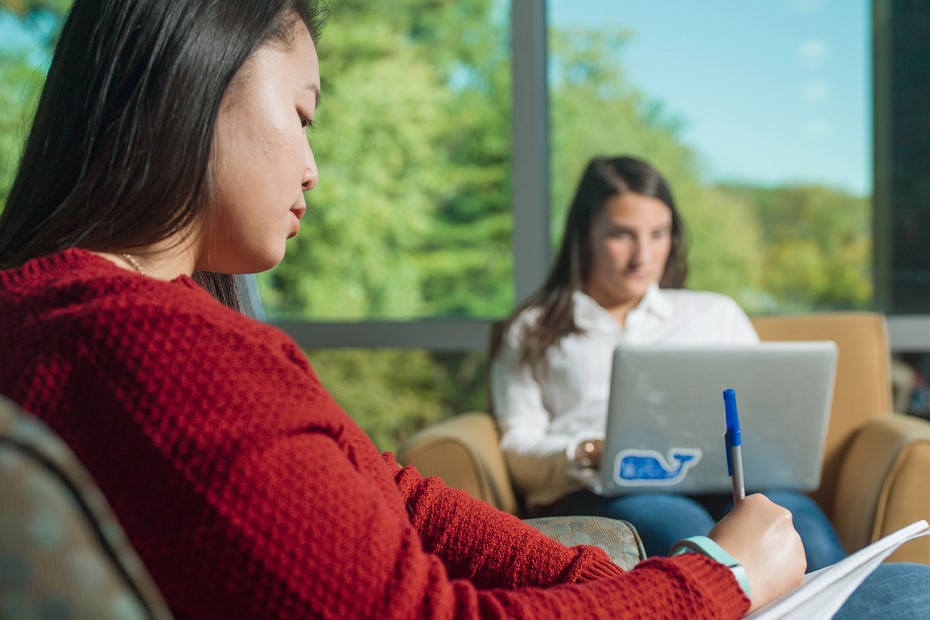 Ever wondered why people behave the way they do, or why society works the way it does?
Sociology is the study of how we live together, uncovering the patterns that shape
our lives and interactions. At Aquinas, the Sociology program gives you hands-on experiences
in Grand Rapids, letting you dive into real-world issues like social inequality, health,
human services, social work, environmental challenges, and community leadership. You’ll
take what you learn in the classroom and see it in action, connecting ideas to everyday
life. By graduation, you’ll be able to understand even the most persistent, complex
social problems, then apply your knowledge in the pursuit of positive solutions and
the advancement of the common good.
Ever wondered why people behave the way they do, or why society works the way it does?
Sociology is the study of how we live together, uncovering the patterns that shape
our lives and interactions. At Aquinas, the Sociology program gives you hands-on experiences
in Grand Rapids, letting you dive into real-world issues like social inequality, health,
human services, social work, environmental challenges, and community leadership. You’ll
take what you learn in the classroom and see it in action, connecting ideas to everyday
life. By graduation, you’ll be able to understand even the most persistent, complex
social problems, then apply your knowledge in the pursuit of positive solutions and
the advancement of the common good.
It's Time to Analyze Your Future
Career Preparation based on leadership
Sociology is the scientific study of human behavior and social life. A fundamental insight of sociology is that institutions, groups, and interpersonal interactions shape lived experiences and life chances. Sociologists explore areas such as social change, human services, the environment, health, and various types of social inequality. The department of sociology incorporates an engaged, community-based curriculum that expands beyond the boundaries of the classroom, exposing students to experiences and opportunities in Grand Rapids, MI as part of their coursework. The goal of the program is to provide students with a complex understanding of persistent social problems—to which they will apply their knowledge in the pursuit of positive solutions and the advancement of the common good.
- Students will be able to define and apply core sociological concepts such as race, gender, class, culture, norms, agency, structure, socialization, and stratification to contemporary social issues.
- Students will utilize engaged community-based experiences and opportunities to study, critique, and improve their society.
- Students will understand the value, construction, and application of sociological theory.
- Students will become proficient in locating, assessing, creating and presenting empirical research.
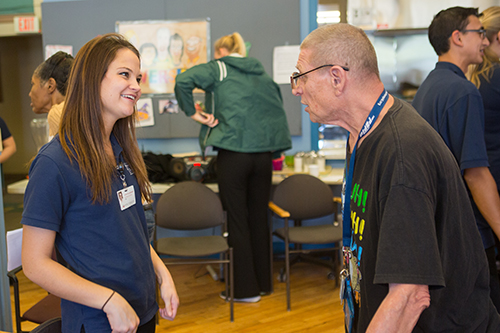
Engaged Department Initiative
The Sociology Department is part of a nation-wide movement involved in transforming traditional “academic” curriculum into one centered on community engagement.
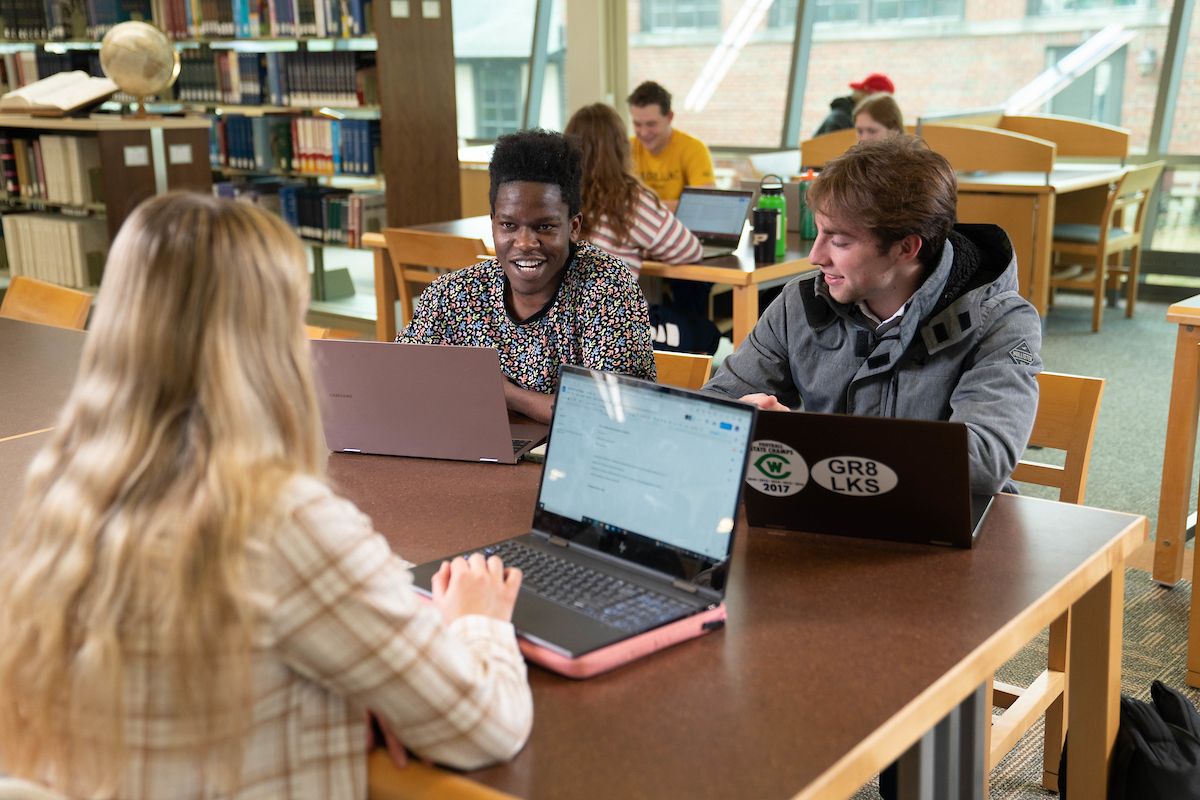
Sociology Resources
Find links to professional organizations related to the field of sociology, helpful research databases, and links to information about prominent theorists.
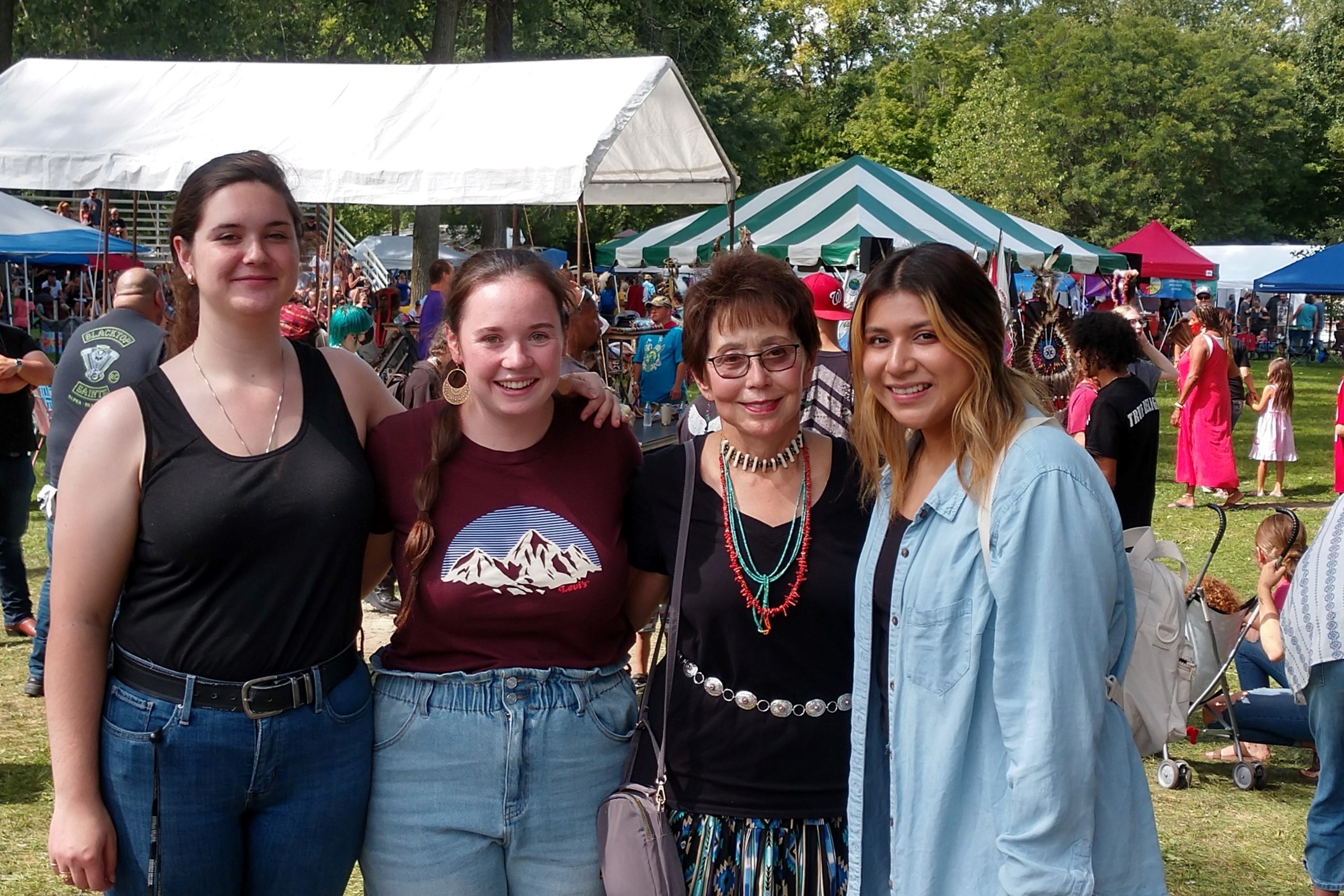
Sociology Facebook Page
See what the Sociology department has been up to lately. The Facebook page c onnects current AQ Sociology students with AQ Sociology Alumni, as well as jobs, events, and other opportunities.
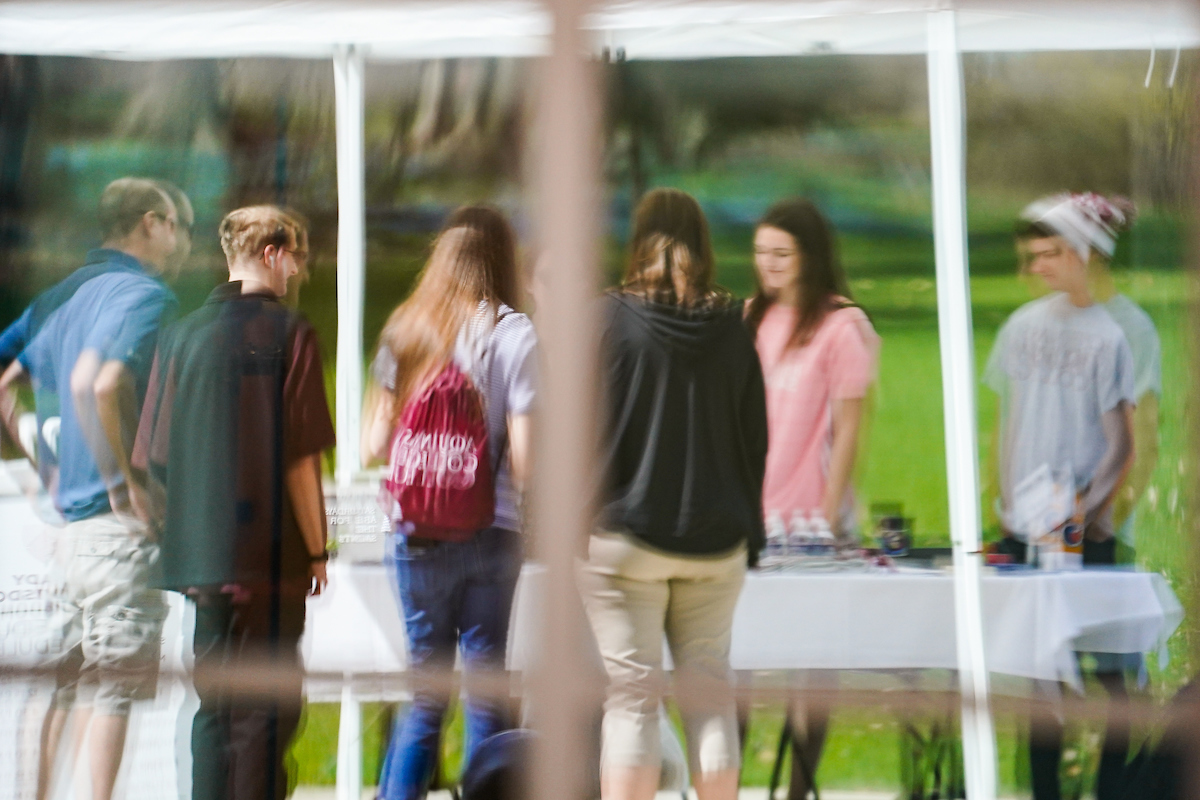
Student Clubs
Aquinas is one of only 11 Michigan colleges and universities to be conferred a Michigan Mu of Alpha Kappa Delta (AKD), the International Sociology Honor Society

Sociology Research Spotlight
Bikes, Barriers, and Well-Being
Dr. Jen Lendrum and Arabella Cummings conducted summer research into barriers to access public space by traversing Grand Rapids on bicycle. In addition to making recommendations for improving access, they found connection and community.Learn more about their work
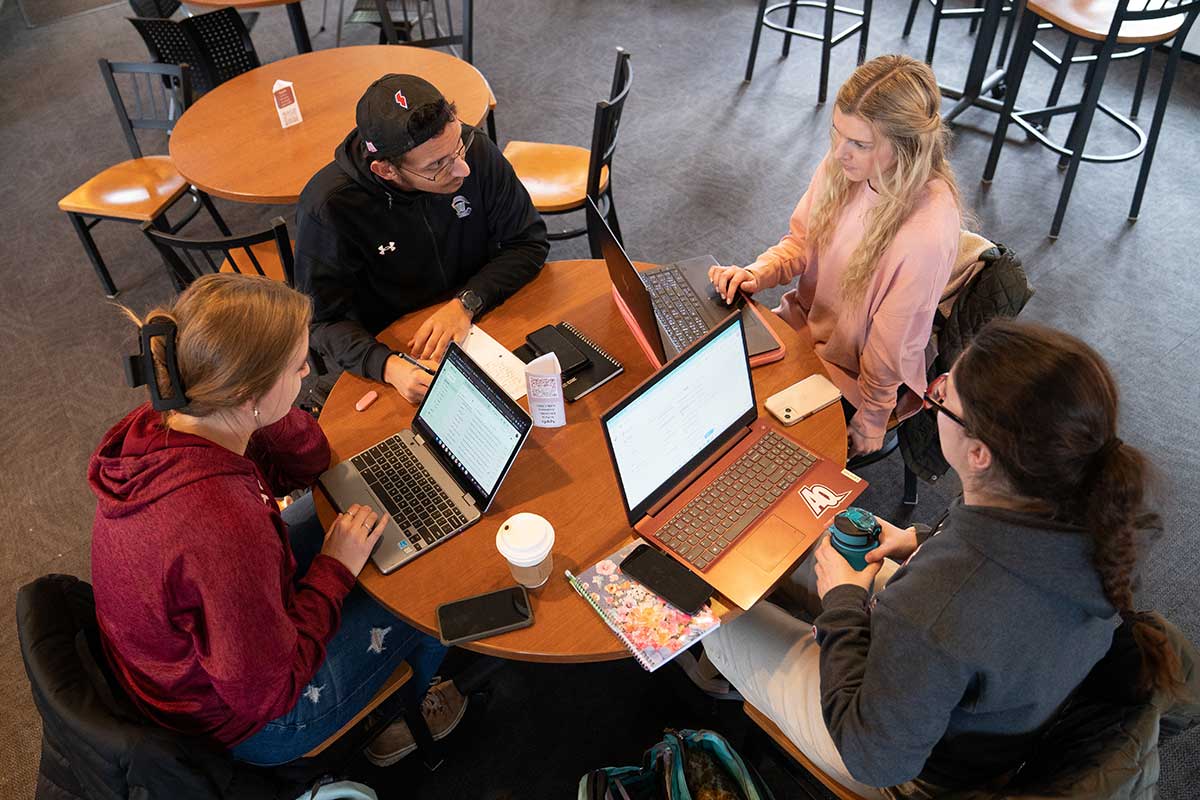
Student Research
Check out the current and past research that Aquinas students do with faculty to further the world's knowledge.Read More about Student Research
IMAGINE THE POSSIBILITIES
|
Common Career Paths
|
|
|
Comon Employers
|
|
To learn more about careers like this, make an appointment with the Advantage Center.
Occupational Employment and Wages - May 2023
Employment estimate and mean wage estimates for Sociologists
| Employment | Mean hourly wage | Mean annual wage |
|---|---|---|
| 2,890 | $51.31 | $106,710 |
Percentile wage estimates for this occupation:
| Percentile | 10% | 25% | 50% | 75% | 90% |
|---|---|---|---|---|---|
| Hourly Wage | $28.83 | $36.55 | $48.93 | $64.90 | $79.46 |
| Annual Wage | $59,960 | $76,030 | $101,770 | $134,980 | $165,280 |
For more information see: Bureau of Labor Statistics
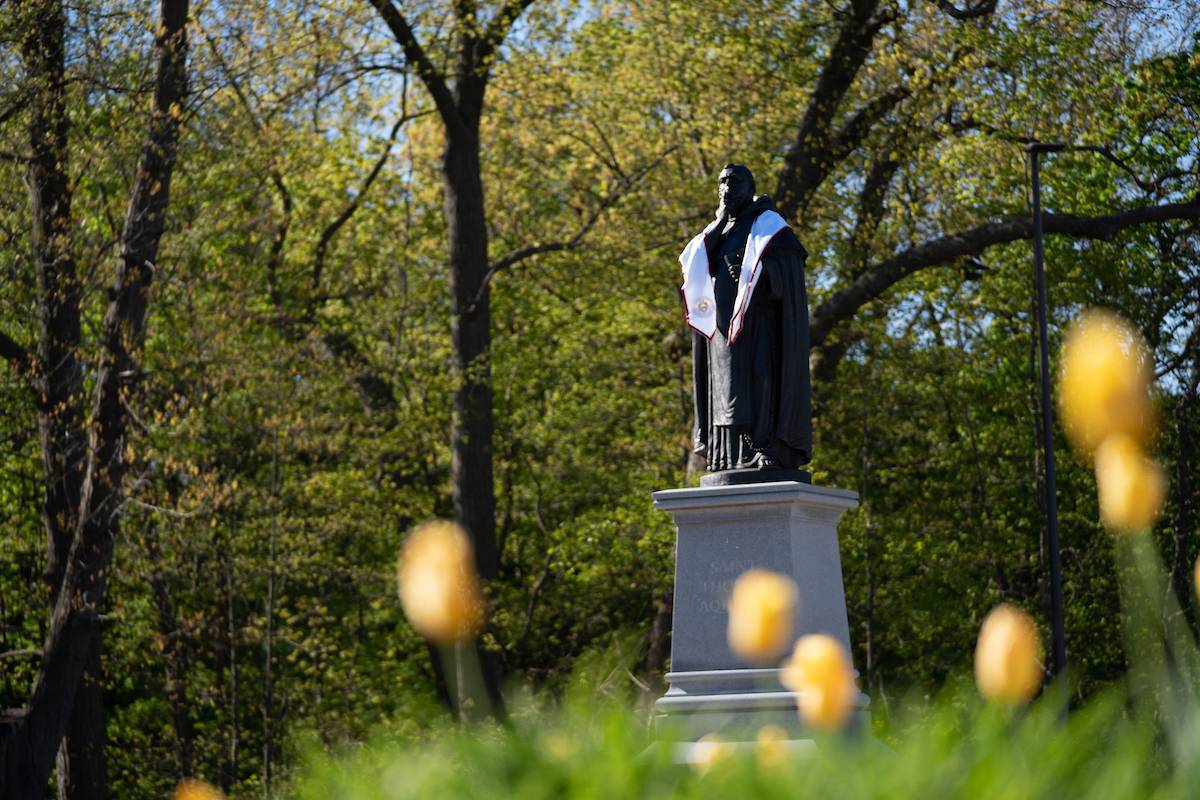
The Advantage Center
Our Advantage Center is here to help you with internships and career decisions, even after you graduate.
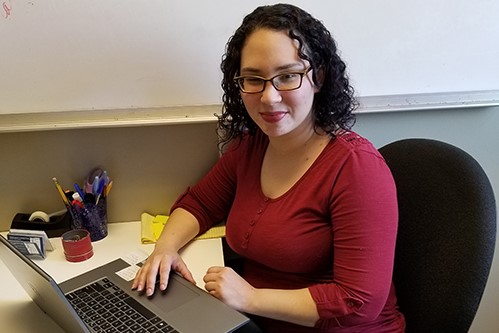
Alumni Profiles
AQ grads are thankful for the small class sizes that allow them to form personal relationships with professors.
News from the sociology department
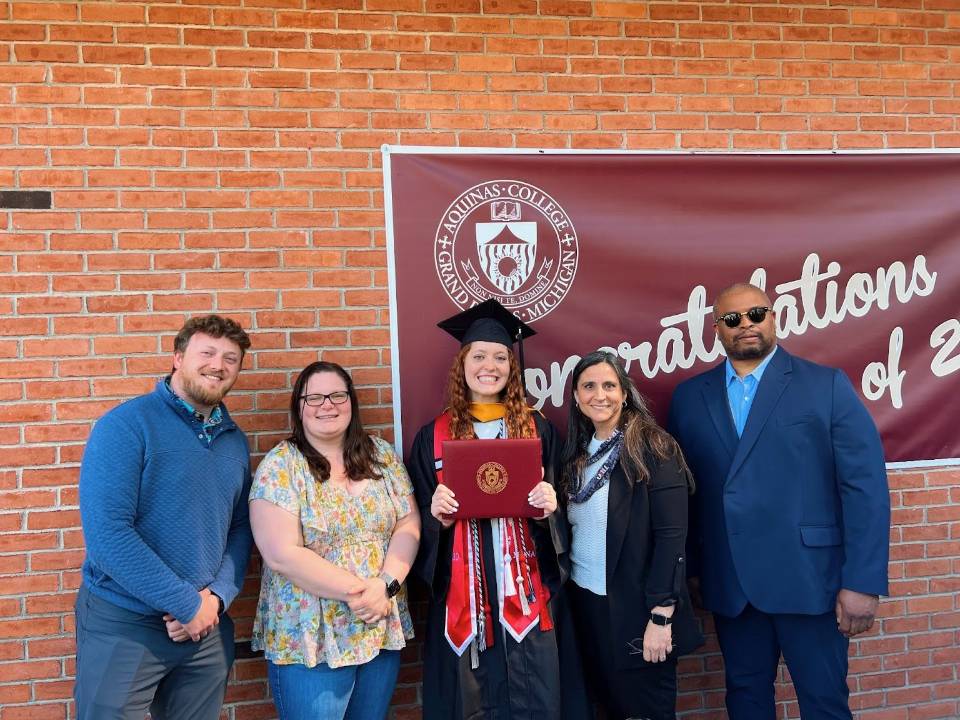
McNair Program Expands Opportunities for AQ Students Like Abbey Vallance
This spring semester, Abigail Vallance graduated from Aquinas College after successfully completing the McNair Scholars Program, a federally funded TRIO Program designed to prepare eligible students for graduate studies.
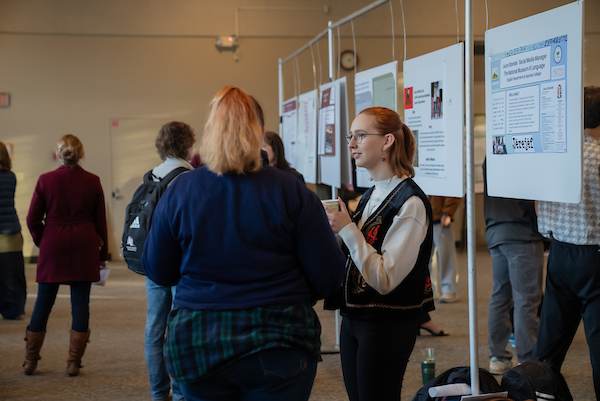
Student Symposium Creates a Space for Significant Contributions to Academia
Aquinas College recently held the 2024 Student Research, Scholarship, and Creative Activity Symposium, a twice-annual event that showcases the quality and diversity of AQ's research.
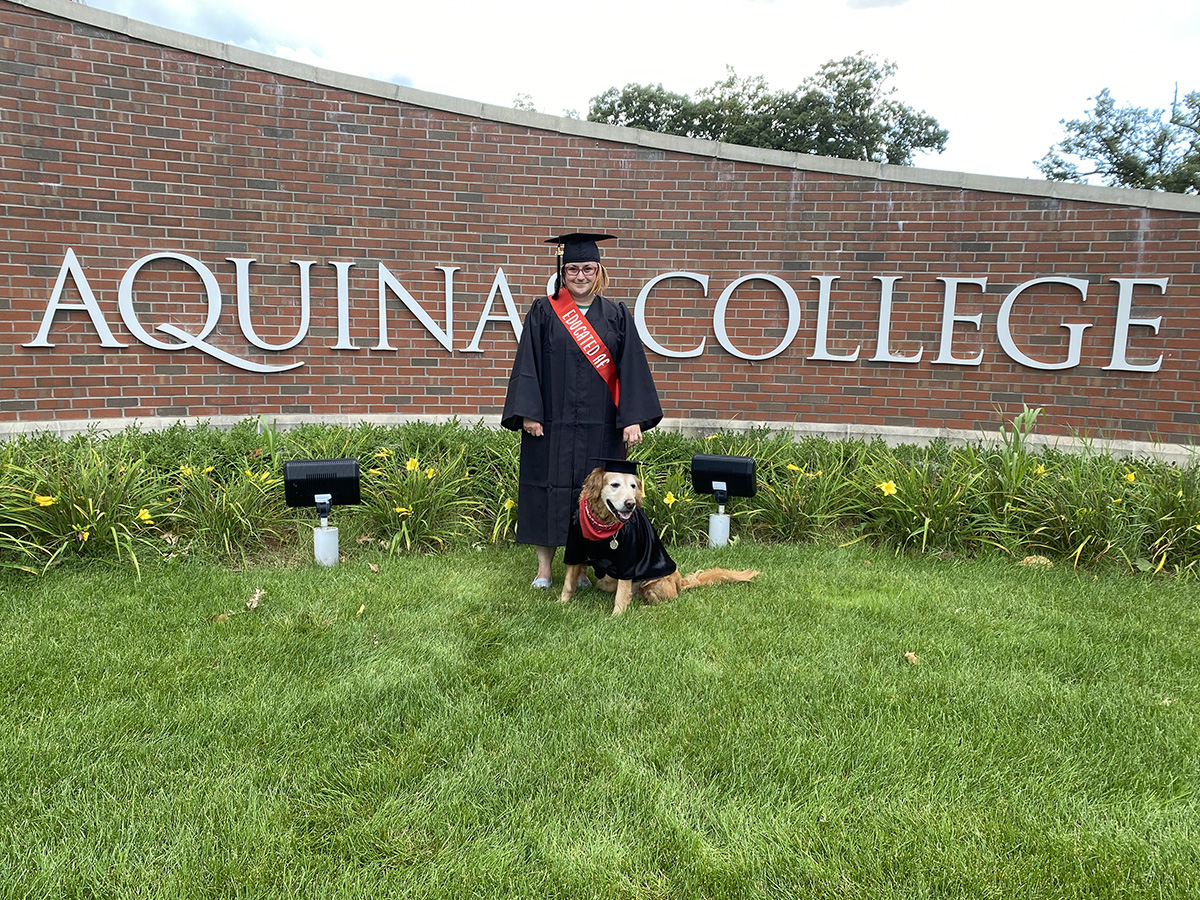
Alumni Spotlight: LeAnn Secord
Joining the Aquinas community means becoming a part of something lasting – a lifelong connection rooted in trust, collaboration and genuine care. LeAnn Secord embodies these values beautifully and showcases why it’s great to be a Saint!
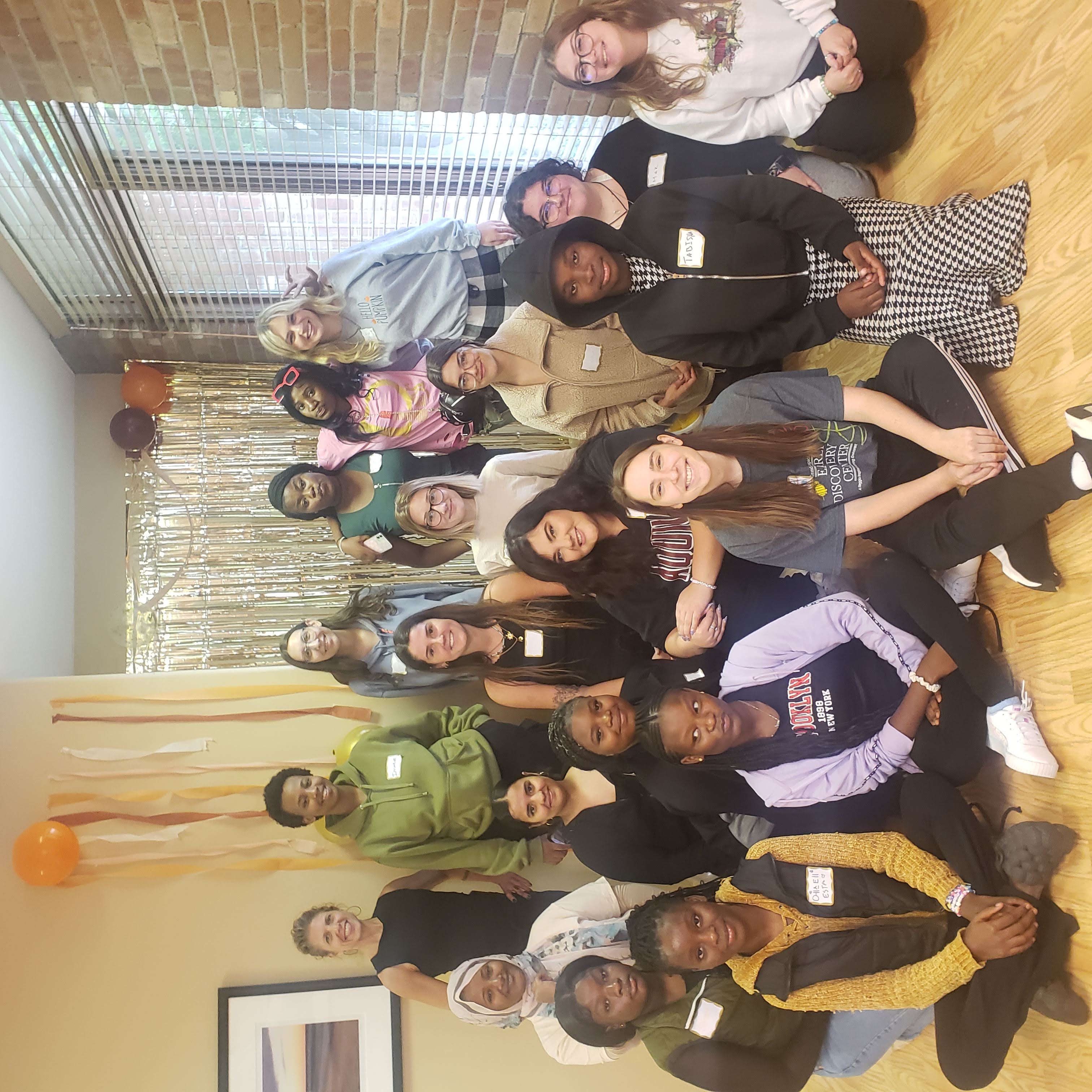
Aquinas Students and Refugee Teens Build Community Through Treetops Collective
This semester, Aquinas students in Dr. Satya Lendrum’s Intro to Women’s and Gender Studies course were paired with teenagers in Kent County who had previously been displaced from their home country.

Summer Research at Aquinas: Bikes, Well-Being and Barriers to Access
Dr. Jen Lendrum and sophomore nursing student Arabella Cummings have spent this summer researching public spaces and barriers to access by travelling all over Grand Rapids on bikes. Find out what they discovered along the way.